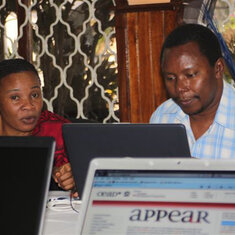Pagecontent
Promoting Science
Up to the end of 2018, altogether 43 Academic Partnerships between Austrian universities and scientific institutions in the key regions and priority countries of Austrian Development Cooperation had been selected for funding under APPEAR. Another 64 collaborations have so far received Preparatory Funding (start-up finance) and 15 of these have been able to obtain subsequent assistance. No further call for proposals will be issued till 2020 to initiate additional innovative collaborative scientific projects. Furthermore, 185 scholarship holders have also been able to take up PhD or Master programme studies. For all this, Austrian Development Cooperation has provided about EUR 20 million from 2010 to 2020.
The goal of APPEAR is to raise the quality of academic teaching and research, make management and administration more effective and step up national and international scientific dialogue. The partnerships also enhance the competencies in economic and social science needed for implementing national poverty reduction strategies in partner countries.
Regional and thematic diversity
In the seven calls to date, all Austrian universities and universities of applied sciences were invited to take part in APPEAR together with scientific and higher education institutions in Ethiopia, Uganda, Kenya, Mozambique, Cape Verde, Burkina Faso, Senegal, Nicaragua, El Salvador, Guatemala, Nepal, Bhutan and Palestine and step up their discussion of development-policy topics and research for development. As of the fifth call, applications are also allowed from Georgia, Armenia and Moldova. Project applications have been submitted by all these countries. Higher education institutions throughout Austria have taken part in these applications. The scientific collaborations cover a broad range of topics from the water sector to human rights to social work. In any case, the partners from the South defined their respective needs.
Theory and practice in exchange
For example, one cooperation between the Austrian University of Natural Resources and Life Sciences (BOKU) and the Nicaraguan National Agrarian University (UNA) promoted close exchange between poor rural communities and the university in agriculture. This enables the academic side to respond better to practical needs and concerns of people: To know which direction to research in, scientists must first identify the plants that are cultivated or needed in the target region, the appropriate cropping and production methods and where new knowledge needs to be imparted. This way, theory and practice complement each other.
APPEAR is implemented by the Austrian Agency for International Cooperation in Education and Research (<link typo3 www.oead.at _blank internen link im aktuellen>OeAD). The current programme period is scheduled to last up to the end of 2020.

